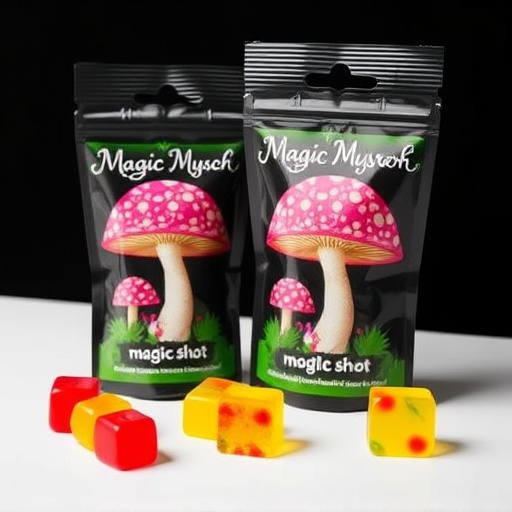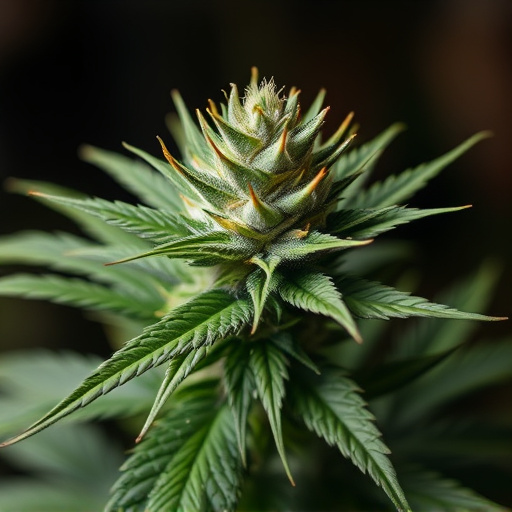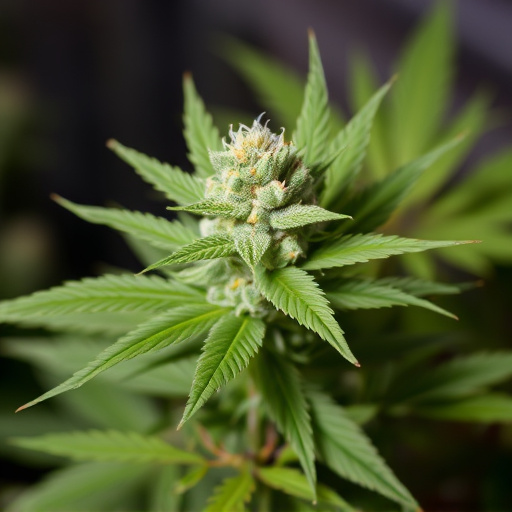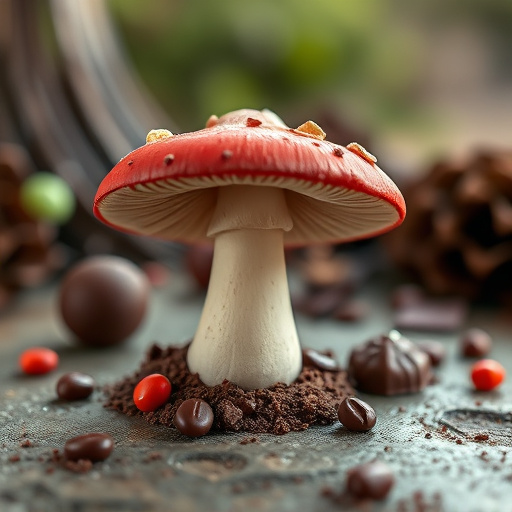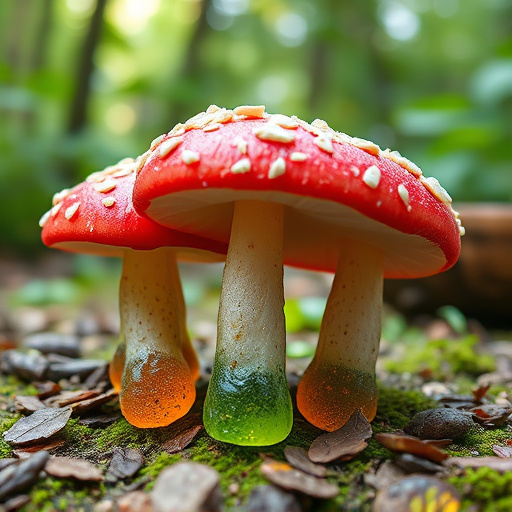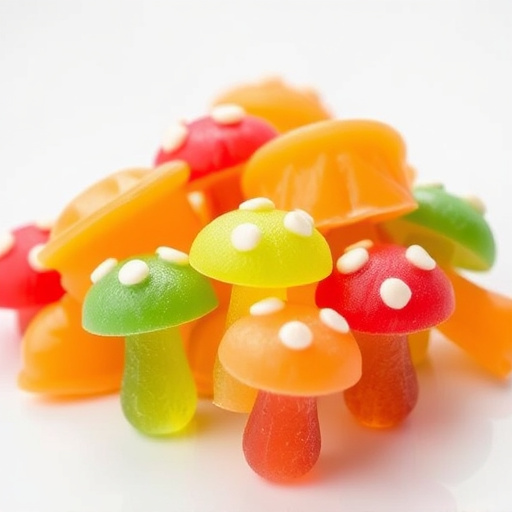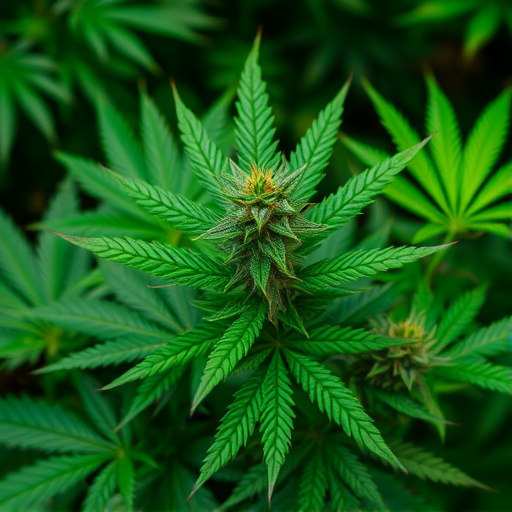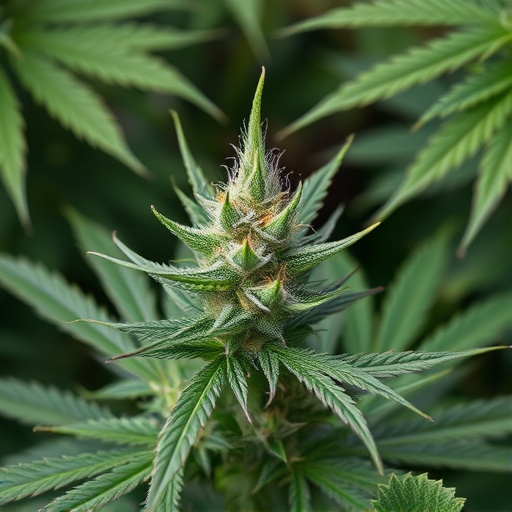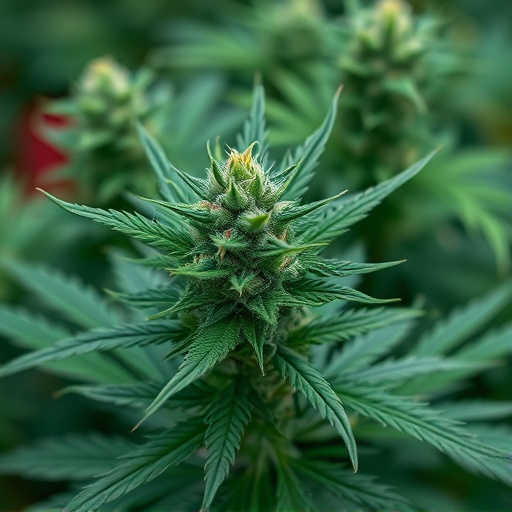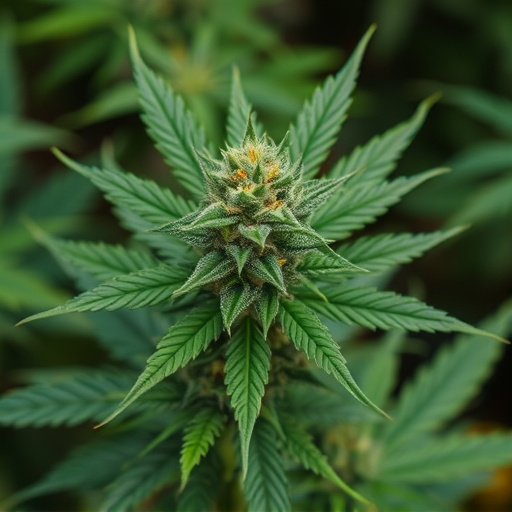The medical strains of cannabis, characterized by their cannabinoid profiles, offer a promising natural remedy for mood and stress management. Cannabinoids like THC and CBD interact with the body's endocannabinoid system to regulate emotions and reduce anxiety. While CBD-rich strains promote calmness without psychoactive effects, high-THC varieties induce euphoria for depression relief. However, individual responses vary due to strain potency, consumption methods, dosage, and personal tolerance. Consulting healthcare professionals before using medical cannabis is essential for safe and effective treatment, especially for those with mental health conditions.
Cannabis flower, with its diverse chemical composition, offers a complex interplay of effects on mood and stress. This article explores how understanding the plant’s various compounds, particularly in medical strains, can impact our well-being. From THC and CBD to other terpenes, we’ll delve into the science behind these natural molecules and their potential benefits for managing stress and enhancing mood. Additionally, we’ll discuss side effects and individual variability, providing a comprehensive guide to navigating the world of medical strains of cannabis.
- Understanding the Cannabis Flower and Its Chemical Composition
- The Impact of Medical Strains on Mood and Stress Reduction
- Potential Side Effects and Individual Variability
Understanding the Cannabis Flower and Its Chemical Composition
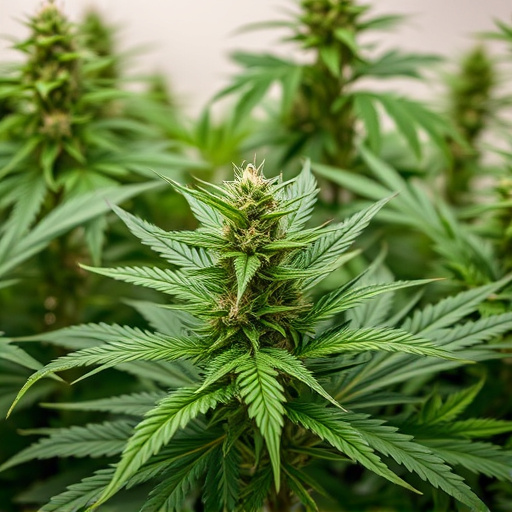
The cannabis flower, scientifically known as Cannabis sativa or Cannabis indica, is a complex plant with a rich history of use dating back thousands of years. At the heart of its appeal are its distinct chemical composition and various strains, each offering unique therapeutic properties. Cannabis flowers contain over 100 different chemical compounds called cannabinoids, the most well-known being tetrahydrocannabinol (THC) and cannabidiol (CBD). These cannabinoids interact with our body’s endocannabinoid system, which plays a crucial role in regulating mood, memory, appetite, and pain perception.
When considering the effects on mood and stress, medical strains of cannabis are often categorized based on their THC and CBD content. Strains high in THC can induce euphoria and relaxation, making them potentially beneficial for managing anxiety and depression. Conversely, CBD-rich strains have gained popularity for their calming properties without the psychoactive effects. This unique interplay of cannabinoids offers a promising avenue for exploring natural remedies in the realm of mental health and well-being, particularly within today’s growing acceptance and research into medical cannabis.
The Impact of Medical Strains on Mood and Stress Reduction

The medical strains of cannabis have been extensively studied for their potential effects on mood and stress reduction. Research suggests that specific compounds in these strains, such as cannabidiol (CBD) and tetrahydrocannabinol (THC), interact with the endocannabinoid system in our bodies, which plays a significant role in regulating emotions and stress responses. CBD, in particular, is known for its calming effects without inducing psychoactive properties, making it a popular choice for managing anxiety and promoting relaxation.
Medical strains designed for mood enhancement often have lower THC content and higher CBD levels, allowing users to experience a sense of calm and well-being without the mental haze associated with high-THC varieties. These strains can be particularly beneficial for individuals dealing with chronic stress, depression, or post-traumatic stress disorder (PTSD). The ability of medical cannabis to provide targeted relief has led many healthcare professionals to recommend it as an adjunct therapy alongside traditional treatment methods.
Potential Side Effects and Individual Variability
The effects of cannabis flower on mood and stress can vary greatly from person to person, a phenomenon attributed to individual variability and the complex interplay between cannabinoids and our bodies’ endocannabinoid systems. While many users report feelings of relaxation, calmness, and improved mood after consumption, potential side effects cannot be ignored. Anxiety, paranoia, and elevated heart rate are among the adverse reactions some individuals may experience, especially with higher THC content or inappropriate dosage.
The impact of medical strains of cannabis is also influenced by factors like strain potency, method of consumption (e.g., smoking vs. edibles), frequency of use, and personal tolerance. Understanding these variables is crucial when navigating the potential benefits and risks. Consulting healthcare professionals before incorporating cannabis into wellness routines is essential to ensure safe and effective use, particularly for those with pre-existing mental health conditions or other medical concerns.
Cannabis flower, with its diverse chemical composition, offers unique benefits for mood regulation and stress management. While medical strains have shown promising effects in reducing anxiety and enhancing well-being, individual responses vary. Understanding these variations and recognizing potential side effects is essential when considering cannabis as a therapeutic tool. Further research into specific compounds and their interactions will continue to shape our knowledge of this fascinating plant and its impact on mood and stress in diverse populations.


